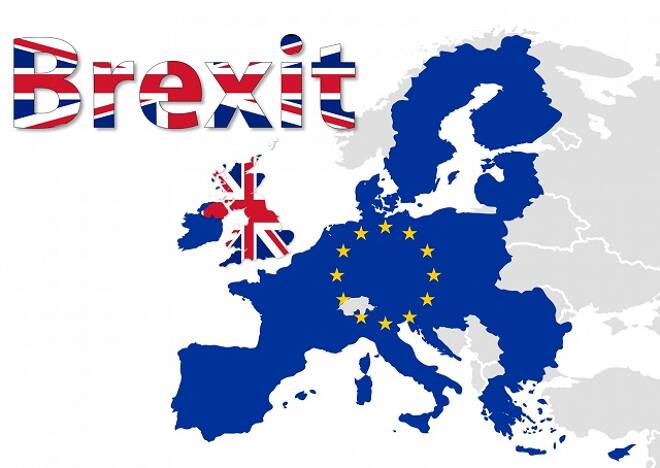Advertisement
Advertisement
What Happens Next If the UK Decides to ‘Brexit’
By:
There is now only one more day left of campaigning over the crucial referendum on whether the UK will remain or leave the European Union (EU), with the
There is now only one more day left of campaigning over the crucial referendum on whether the UK will remain or leave the European Union (EU), with the polls indicating that opinion is polarised.
If the UK chooses to step away from Brussels, what will happen and how could the UK look as it takes its first steps as a non EU member?
Article 50
The only established legal process to leave the EU as part of its constitutions is Article 50 in the event of a ‘Brexit, once this has been invoked the UK will immediately be excluded from key decisions taken in the EU over their relationship the UK, particularly concerning trade.
The Pound
There are significant fears that leaving the EU will lead to the UK pound falling in value precipitously, as uncertainly over the direction of the UK economy grows, it is thought that investors are unlikely to have confidence in sterling.
Recently, influential investor George Soros predicted that the pound would lose 15% of its value in the immediate aftermath of a result to leave the EU, the level of devaluation could even reach over 20% he believed, a more severe depreciation that the infamous fall in the pound on ‘Black Wednesday’ in 1992, when Britain had to leave the European Exchange Rate Mechanism.
Analysts at HSBC have also said that the pound could lose up to 20% of its value, regarding the GBP/USD exchange rate, in response some commentators have dismissed the forecasts as scaremongering.
David Cameron’s Future
The UK Prime Minister David Cameron has been a strong advocate of remaining in the EU, if the vote were to go against him, then it is inconceivable that he will attempt to negotiate a ‘Brexit’ package with the rest of his counterparts in the EU.
Cameron has been open that he will not seek re-election for a third term in office, a vote out of the EU is likely to trigger an earlier departure from number 10 Downing Street than anticipated, if he continues there is even the possibility he could face a leadership challenge from an anti EU candidate.
In the event of his resignation, a leadership battle will ensue. That will probably feature his Chancellor George Osborne, prominent Leave campaigner and former Mayor of London Boris Johnson, and the current Home Secretary Theresa May.
Bank of England
Senior figures including Bank of England governor Mark Carney have come out in favour of remaining in the UK, but if Brexit happened some contingency plans are in place.
These include, three additional Indexed Long-Term Repo operations in the weeks around the EU Referendum, which basically are an auction of central bank reserves in order allow banks and building societies to obtain liquidity.
Trade- The First Steps
The UK will have to think quickly in sorting out the finer details of trade agreements, particularly with the EU, as the bloc is a pivotal export market.
Think tank Open Europe in a paper on ‘Brexit’, said that initially there would be a period of negotiation between the UK and the rest of the EU over preferred goods sectors.
They also outline several scenarios, including a ‘single lite market’ arrangement, where the UK would be inside a tightly defined single market, this must also involve voting rights over the rules governing the single market, which would be very difficult to negotiate.
Alternatively, there could be a full free trade agreement, in theory could include better access for financial services, Open Europe also said that the UK could pursue unilateral liberalisation, which would involve minimum negotiations with the EU but difficult domestic political decisions.
Other outcomes, could be that the UK joins the European Economic Area, where the rules of the single market would apply, but the UK would lose any voting rights over market legislation, there is also the option of joining the EU Custom’s Union, permitting the UK to export to the EU without tariffs, but not having any access to service markets.
About the Author
Peter Tabernerauthor
Advertisement
